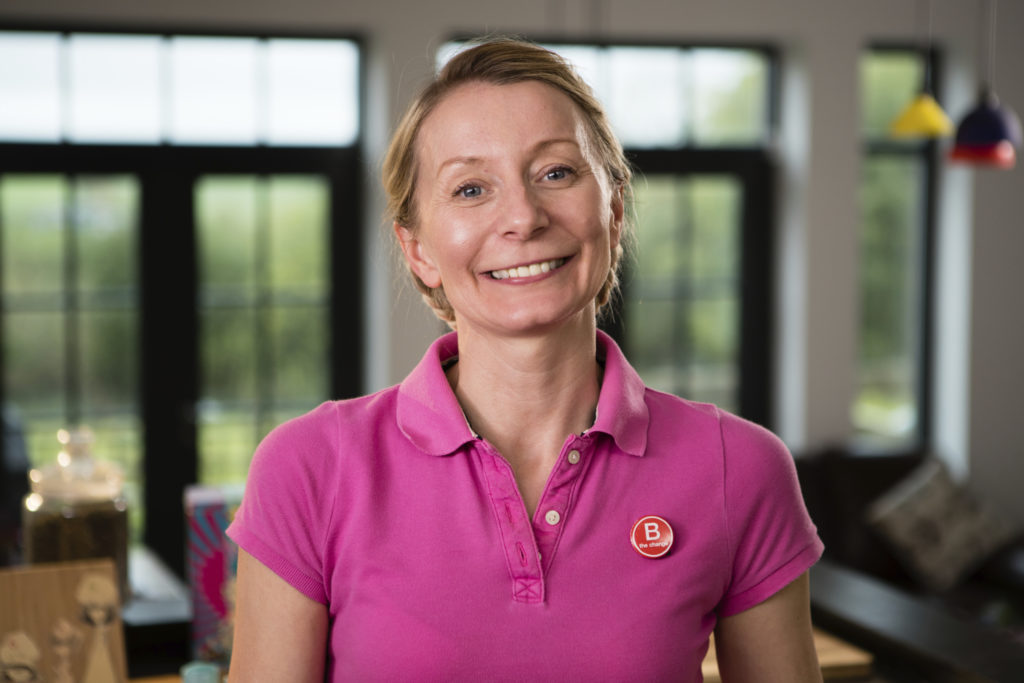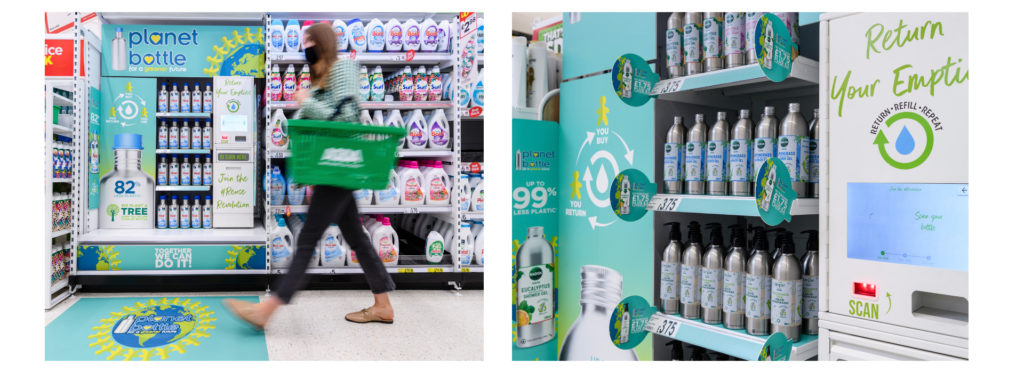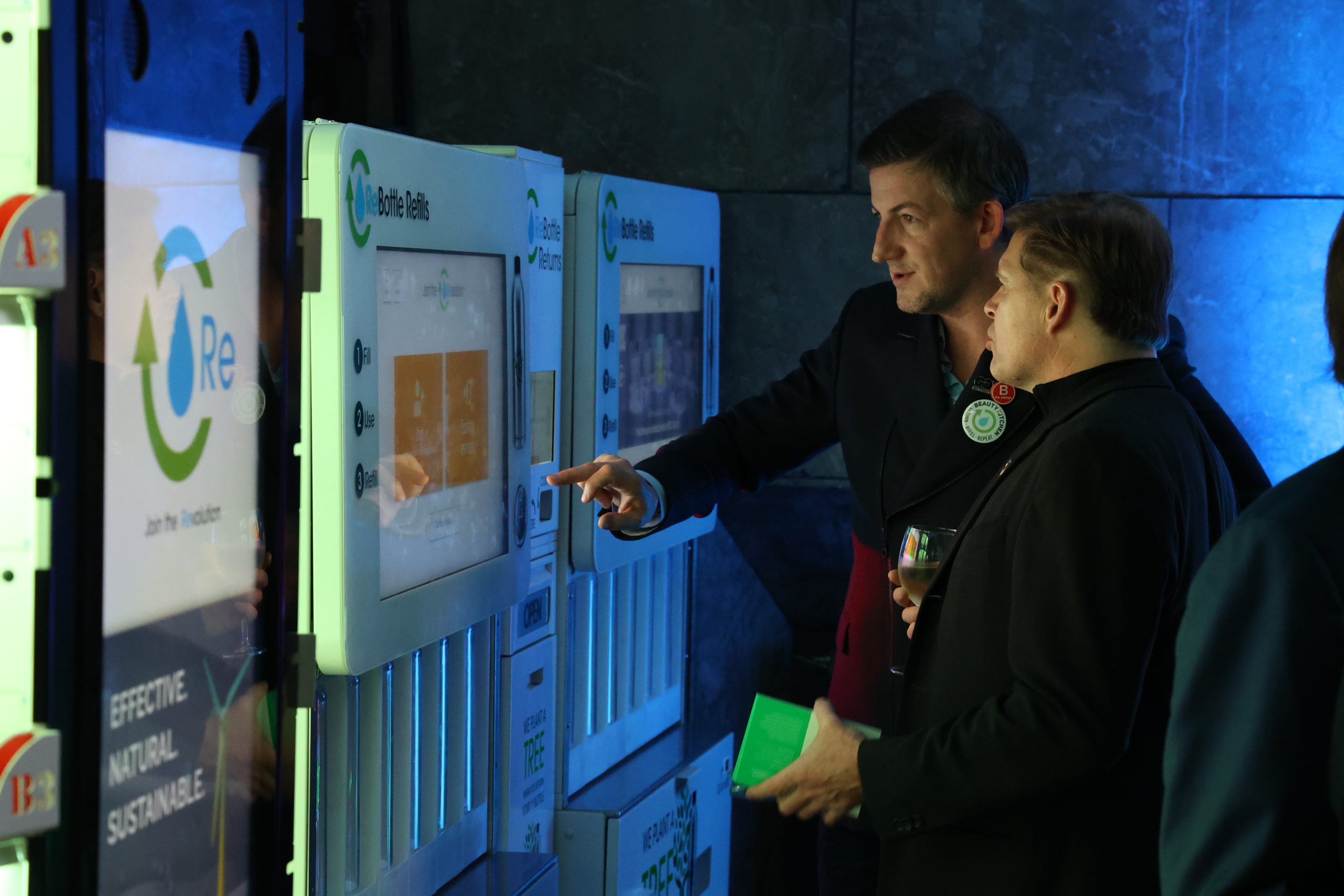4 Mins Read
Re is a circular economy platform founded around the principle of reusing items and recieved £3 million to bring their system to more retailers. Re was launched by Beauty Kitchen to stop the influx of single-use plastic in the beauty industry. During a trial of the model, Re claimed that more than four million bottles were prevented from entering landfill.
New funding comes courtesy of the UK Research and Innovation’s (UKRI) Smart Sustainable Plastic Packaging (SSPP) challenge. It will allow for a wider rollout and further developments, with Re pledgeding to prevent a further 100 million plastic bottles entering landfill in the next three years.

How it works
The Re system allows consumers to return any packaging carrying its logo for washing and re-entry to the supply chain. Every item can be used an infinite number of times, creating zero new waste. Beauty, skincare and cosmetics are the main sectors being focussed on. In addition to reusable packaging, consumers will be able to take the lead by choosing to refill their products, another initiative that has been trialled in 19 Uk supermarkets so far.
“This funding is exactly what ‘Re’ needs to help refine and share the model with more brands, retailers and consumers,” Jo-Anne Chidly, co-founder of Beauty Kitchen and Re said in a statement. “We are very pleased with the UKRI’s decision and look forward to seeing the impact of this grant funding right away. We are also thrilled to see the highly successful results from the ongoing trials for ‘Re’; this is exactly what we were hoping for as so many of our efforts have been focused on over the past couple of years. All three of the key elements of the circular economy are buying into it. The consumers love it, the brands who use the reusable containers are very pleased, and the big retailers are all for it. This is how you make change and reduce waste.”
Re will contain a number of separate initiatives that are interconnected and can work together as part of a wider waste reduction scheme. Advanced refill systems will be placed in prominent locations to encourage use and pre-filled smart products will be available to buy quickly. Packaging return points are said to be interactive, to encourage use. Smart bottles are a key asset, made from steel, glass and washable plastics. They are traceable and provide analytics about consumer behaviour and scheme adoption. Consumers are able to scan a QR code on the bottles and discover how many times they have been reused already. They can plant trees, collect reward points and monitor impact alongside, making the process engaging and even addictive.

Results from the trial
Re’s trial was carried out in partnership with retail consultancy RBC Group and City to Sea, an environmental charity. The 19 UK supermarkets that participated provided positive data. An overall 80 percent return/refill rate was identified, with 64 percent of consumers saying they would be willing to switch to a retailer that offered a refill station if their favourite did not. 94 percent f people claimed they would shop more in locations with refill stations, with 95 percent stating they had a “good” or “very good” experience while using Re facilities. 96 percent of people revealed they would buy from refill stations.
“Through years of engaging consumers and communities in refill and reuse, we know what works and what doesn’t,” Natalie Fée, City to Sea founder and CEO said in a statement. “And that’s why we’re so excited to see Re’s innovative ‘pay once, reuse forever’ messaging combined with easy-to-use packaging and refill machines solutions to be scaled up. You can’t just ask people to use less plastic, you have to inspire them and make it easy for them.”
The new funding will allow the Re project to include location-based updates, via the City to Sea refill app, as to nearby outlets that are onboard with the programme.
To date, 11 companies have signed up to work with Re. Unilever is a significant addition, bringing four of its brands to the programme. The global conglomerate was an early adopter, being the second company to join the trial. The latest is Elemis, a heritage British skincare brand known for luxury products. Asda, Co-Op and Sainsbury’s are the first supermarkets to align with the platform.
The route to zero waste
Zero waste methodologies are slowly making their way into supermarkets and grocery stores. Last month, Californian grocery startup Zero announced it has closed an $11.8 million seed funding round for its zero waste delivery system. Consumers are able to place an order and receive it, in sustainable packaging, within two hours. The company was founded to make zero waste shopping easier and cost-effective, with goods being delivered in proprietary reusable containers.
In December last year, Dutch sustainable grocer Pieter Pot scooped $9 million to facilitate expansion into wider Europe, including the U.K. The company specialises in providing reusable packaging, which is collected, washed and put back into the supply chain, in a similar style to Re. Here, it is focused on food items.
All photos by Re.





